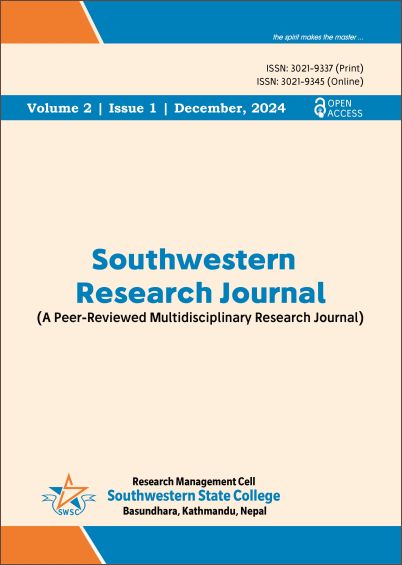Practice of Pesticide Use and Its Health Effects Among Farmers in Bhaktapur: A Cross-Sectional Study
DOI:
https://doi.org/10.3126/srj.v2i1.76792Keywords:
Farmers, Health effects, Nepal, Occupational safety, PesticideAbstract
The global rise in pesticide usage is a concern in the agricultural sector, with Nepal experiencing a steady annual increase in pesticide application. This study aimed to assess the pesticide use, health effects, and associated factors among farmers in Bhaktapur, District. A cross-sectional analytical study was conducted from June to December 2019, involving 320 farmers in Bhaktapur selected through a simple random sampling method. Data were collected through face-to-face interviews utilizing pre-tested semi-structured questionnaires. The statistical analysis was performed via SPSS Software version 16.0. Additionally, the Chi-Square test was applied to assess the associations between independent variables and health effects among farmers. Most of the farmers used herbicides (40%), insecticides (29.7%), and Fungicides (22%). A total of 64.2% of the respondents complained of discomfort immediately after spraying pesticides. The most common complaints reported by farmers were skin rashes and burning sensations (72.5%), headaches (27.3%), nausea (46.7%), dizziness (41.6%), and respiratory issues (8.3%). Health effects were more prevalent among farmers with over five years of pesticide use and those lacking training. Farmers' knowledge of health impacts and their use of personal protective equipment (PPE) were strongly linked to the health effects they experienced. Even though farmers are knowledgeable about pesticides, many still practice unsafe methods when using them, resulting in health problems. To address this, the government should offer regular refresher training on the safe use, handling, and disposal of pesticides, ensuring farmers can apply their knowledge safely and effectively in the field.




